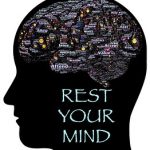Are you addicted to email which is leading to poor sleep and the ability to concentrate? Probably according to recent research from the Sleep Council and others.
Whilst Sheryl Sandberg in ‘Lean In’ urges us to work full on, others such as Arianna Huffington have recognised the effect lack of sleep can have on ones well being, creativity and overall productivity – see ‘Thrive: The Third Metric to Redefining Success and Creating a Happier Life’. If billionaire’s with all the support they need are struggling what hope is there for us mere mortals? France and Germany are attempting to address the situation by passing a law prohibiting managers sending employers work emails after 6.00 pm.

Reduce your email addiction
Yet in the 24x7x365 many feel they must remain connected at all times, a fact highlighted at several recent Smart Email Management workshops we have run over the last few weeks. Many feel that their clients expect them to be available and respond to emails no matter what time of day. But do they? Is this more about either a perception that they are the only ones who can deal with the situation whatever that might be or a chronic case of email addiction.
My personal opinion is that it is a combination of both which is damaging to ones work performance and personal life and not least your sex life. We all need a certain amount of privacy and down time. Here are my five top tips to improve the quality of both ones sleep and hence performance (at work and home) by switching off from email.
It’s interesting that research we conducted revealed that it is generally internal senders who expect the quickest reply. It is probably these internal senders who also are driving up the 24x7x365 culture and not the clients themselves.
What is your opinion? Do you ever disconnect from email for more than three hours? If so, what is the impact on you and your business?
If either you or your colleagues need help with email addiction please call us to help how we have helped others reduce their email addiction and improve their performance and work-life balance.
Tags: email addiction, email and sleep, Out of Office, performance, sleep depravation, VW, well being, Work life balance
Over the last month I have noticed myself increasingly unable to focus and do any blue sky thinking. Is it age? ‘When I am Sixty Four’ by the Beetles does have a certain resonance with me. Having just won two significant pieces of silver on the golf course, given a couple of major presentations and been recruiting for a new CEO for the Dorset Chamber of Commerce that might not seem likely. Then I checked my email and social networking behavior.

Tortoise approach to email overload
Several articles have caught my attention recently. Two related to the tortoise and hare fable. First was Schumpeter’s ‘In praise of laziness’ and second was Susie Boyt’s ‘Tortoises knows a thing or two’. Both urge us to slow down and know when it’s time to stop and take stock. We are bombarded with emails night and day and the urge to check them every few minutes has created two serious new diseases: email overload and email addiction both of which I have frequently written. Was I now falling victim to one of both of them?
The third article to make me sit up was Emma Jacobs’s ‘Help to get a good night’s sleep’. Checking your emails late at night is know to be disruptive and can result in disturbed sleep patterns. In this recent article by Emma Jacobs she again stresses the need for down time to create a quiet mind which in turns enables us to focus and feel less stressed.
Monitoring my connectivity for 48 hours I realised I had slipped into some appalling and destructive habits:
In short I was suffering from chronic email and information overload which in turn was creating attention deficit. Here is the five point action plan I prescribed myself.

Email overload medicine
In other words become a tortoise more often during the day and take time to look around, smell the roses, and let my mind wander free of clutter and other people’s actions lists. Is the anti-email overload medicine working. Its early days but my mind does seem quieter and gradually I am regaining my ability to blue sky and think outside the box. Next is to re-start practicing mindfulness and review my eating habits.
Tags: email and mindfullness, email and sleep, email overload, email overload medicine, tortoise and email overload